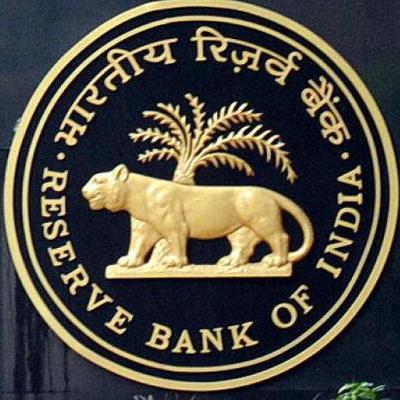RBI maintains its policy rate (repo rate) but hints at changing its ‘accommodative stance’ to a ‘less accommodative stance’- temporary relief to homebuyers since mortgage rates are likely to remain stable.
By Varun Singh
RBI today kept the repo rates unchanged, this has surely come as a relief for the real estate sector that was expecting a change. Also for homebuyers who wish to borrow loans from banks for their home purchase.
Here’s what industry stalwarts have to say on the RBI’s decision of staying cautious and not changing the repo rates.
Anuj Puri, Chairman – ANAROCK Group:
Despite inflation edging higher in the aftermath of the Russia-Ukraine war and surging oil prices, the RBI has again decided to keep the repo rates unchanged at 4% and reverse repo rate at 3.35%. This is the eleventh consecutive time that the RBI maintained status quo amid the current uncertainties and the global economy also seeing a sharp rise in inflation.
The real estate industry had been gearing up for an increase in the repo rates, and the fact that this has not happened is obviously positive for home loan borrowers. Developers’ input costs have been inflating steeply and a hike in property prices is not more or less inevitable. Moreover, the acquisition cost in Maharashtra has gone up by 1% on account of the metro cess applicable from this month. To this sombre backdrop, increased home loan lending rates would have been a considerable setback.
Homebuyers have a continued opportunity: To avail of decadal low home loan interest rates. The overall cost of living has increased significantly since the Ukraine debacle began playing out, and the RBI has taken a proactive and necessary step to maintain relative housing affordability in the country.
Dr. Samantak Das, Chief Economist, and Head Research and REIS, India, JLL.
RBI maintains its policy rate (repo rate) but hints at changing its ‘accommodative stance’ to a ‘less accommodative stance’- temporary relief to homebuyers since mortgage rates are likely to remain stable. The decision by the RBI of maintaining the policy rate is a welcome step, but there are hints toward a likely change in the policy rate and stance if the economic environment does not improve as far as inflation and growth dynamics are concerned. The rise in Inflation due to the sharp spike in crude and commodity prices has led to its upward trend and is likely to be more lingering than expected. There are indications that the opportunity for homebuyers to avail of low mortgage rates is shrinking in the short to medium term. Indian residential market staged a smart recovery in 2021 as sales grew by 72% year-on-year and reached close to 90% of the pre-Covid 2019 sales levels. However, the rise in construction costs in the recent past is expected to put pressure on developers and may impact residential sales. The transmission of rising input costs to the homebuyers needs to be monitored. The stable mortgage rates are expected to provide temporary relief to the homebuyers and it is be seen how long this opportunity of low home loan interest rate prevails.
Ramesh Nair, CEO, Colliers India and Managing Director, Market Development, Asia, Colliers
RBI continues to keep the repo rate unchanged for the 11th time in a row, at 4%, keeping an ‘accommodative’ stance during its first monetary policy meeting for FY 2022-23. This will greatly help the economy recover to pre-Covid-19 levels at a time when the economy is steadily gaining ground. The geopolitical scenario on the global front and other challenges have led the RBI to lower its growth forecast to 7.2% from 7.8% for FY2022-23. However, the Indian economy appears to be well placed to withstand the shock supported by its forex reserves and stable financial sector. From a real estate perspective, the unchanged repo rate will continue to provide elbowroom to homebuyers, since home loan rates are at a record low. The housing sector saw a revival in 2021 and the continued low home loan rates can further propel homebuyers’ sentiments. The RBI hiked its reverse repo rate, which was expected due to inflationary tendencies seen in the economy.
Kaushal Agarwal, Chairman, The Guardians Real Estate Advisory
The RBI played the role of the Good Samaritan by maintaining the status quo on rates despite inflationary pressure. There may be criticism from a macro-economic perspective, but we need to understand the fact that the RBI is playing a complex game of balancing growth with inflationary pressure. This could be elucidated from the fact that despite geopolitical pressure, the RBI had decided to hold its key lending rates steady at record low levels for the 11th straight meeting to support a durable recovery of the economy from the Covid-19 pandemic. From a real estate perspective, this is good news for home buyers as no change in the repo rate means home buyers can avail the decadal low interest rate for their new home purchases. At the same time, this will also be the last bus to buy property at the best price proposition as we anticipate that not only the interest rates but property prices are also going to rise by the next quarter.”
Amit Goyal, CEO, India Sotheby’s International Realty
We appreciate RBI’s stance to defend the growth momentum of the Indian economy and keep key rates unchanged. This is significant for the housing sector, which has just about regained its sales velocity. The industry is already feeling the heat of rising input prices with inflationary pressures. Keeping home loan rates benign is of utmost importance to give a long leg to the sector’s recovery, which in turn will have a positive growth impact on several ancillary industries.
Pritam Chivukula, Co-Founder & Director, Tridhaatu Realty and Treasurer, CREDAI MCHI
For the first time since the pandemic, inflation has emerged as a bigger concern than growth for the RBI and therefore the decision was on the expected lines. The inflationary pressure is due to macro economic factors like the Russia- Ukraine war, disruptions of supply chain due to Covid and increase in wholesale commodity prices. Thus, by keeping the rates unchanged RBI has indicated that the domestic consumption is not to be blamed for the inflationary pressure and thus not burden the common man with higher interest rates. This will continue to boost the India consumption story and give a boost to the GDP of India. In the past couple of years, the homebuyers have made the most of the rock-bottom interest rates on home loans along with offers from good developers and the upcoming occasions such as Akshaya Tritiya will fetch them yet another chance to do so. We have already started witnessing an upward revision in the property prices due to the rising construction costs and higher stamp duty as a result of the metro cess and ready reckoner rates. The lower-interest rates could prove to be yet another opportunity for the homebuyers to make their desired purchase. We are continuing to urge the Government to look into the rising prices in interest of the homebuyers.
Dr. Sachin Chopda – Managing Director, Pushpam Group
We welcome the RBI’s decision of keeping the key rates unchanged amid the global uncertainties. This would encourage the prospective homebuyers to still close-in on their property investments. In the last couple of years, we have witnessed a lot of investment in real estate as it has provided the investors with more value for their money and it has also become an attractive asset class when compared to other investment options.
Shraddha Kedia-Agarwal, Director, Transcon Developers
RBI maintaining status quo on key policy rates was anticipated given the inflationary concerns in recent months along with the macro-economic factors like the Russia-Ukraine war and the hike in the commodity prices. Considering the global scenario, the decision will help to sustain liquidity for some more time which will augur well for the real estate sector and the overall economy. We have already started seeing a vertical movement in the home prices and the decision will therefore help in enhancing the confidence of the homebuyers.
Bhushan Nemlekar, Director, Sumit Woods Limited
It was on the expected lines that the RBI will keep rates unchanged and maintain its accommodative stance in its first MPC meet for the new financial year considering the rising inflation on account of geopolitical developments. The Government has always taken affirmative measures towards the recovery of the economy with sustained fiscal & monetary support. With the prevailing low home loan rates for homebuyers, the real estate sector has already been immensely benefited. This decision will further boost the consumer sentiments while sustaining the growth momentum in upcoming months.
Jitesh Lalwani, President, Home Sync Real Estate Advisory
Keeping in mind the economic concerns owing to the inflation amid the global uncertainties in near future, we welcome the RBI’s decision to continue with their accommodative stance. The measures announced were much needed to amplify the liquidity in the economy and are considered as a progressive step towards the revival of the real estate sector. The RBI’s decision will boost the homebuyers’ confidence to make their purchase of owning a dream home.
Soumitra Majumda, Partner, J Sagar Associates (JSA)
The RBI statement reflects cautious optimism – focus on ensuring robust recovery before accelerating growth levers. The accommodative policy stance should nurture the credit markets – though the hint of a calibrated withdrawal may add a dash of uncertainty. Continued government borrowings should be directed towards delivering the infrastructure development promises of the government – this will certainly bolster the investment sentiment for India. Policy thrust on climate change risks and its criticality on sustainable financing – important development to be closely watched. The policy also provides adequate push for fintechs – both in terms of deepening the market and for enhancing security.
Dhiraj Relli, MD &CEO, HDFC securities
The latest RBI policy reflects hesitant hints to turn hawkish but sound dovish. The aggressive cut in GDP estimates for FY23 and sharp increase in FY23 inflation projections could mean some tightening measures going forward, reinforced by the change in stance to focus on withdrawal of accommodation. The current geopolitical events, supply chain issues and commodity price inflation are tying the hands of RBI and forcing it to gradually turn hawkish although it would like to continue with its pro growth outlook. 10 Year Gsec yields has risen to 7% reflecting the concern of the street on the large borrowing program amidst the rising rates scenario.
Also Read: RBI makes Real Estate Happy for 10th Consecutive time









